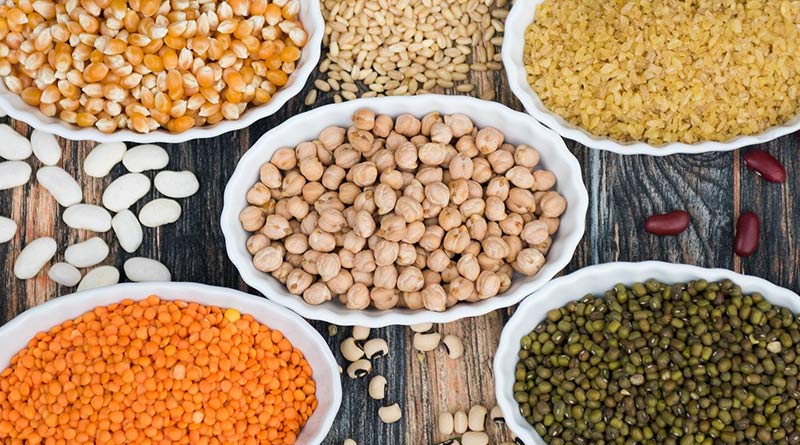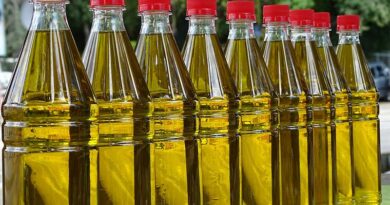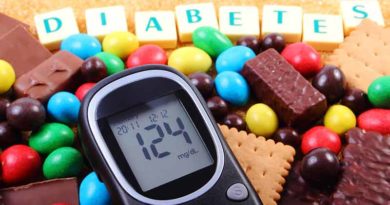Plant-based diets & COVID-19

Executive Summary
(I had a rapid response published on this).
* A paper was published in BMJ Nutrition Prevention & Health on June 7th, 2021. It led to media headlines that being vegan or pescatarian may reduce the severity of COVID-19.
* The paper was based on an on-line survey of 2,884 healthcare workers from 6 countries. All data had been filled in online. All data were self-reported.
* Participants were asked to choose which of 11 diets (including ‘other’ or ‘none of the above’) they had followed over the year before the COVID-19 outbreak. All diets were self-reported.
* The main diets examined in the study were i) ‘whole food, plant-based’ diets ii) ‘whole food, plant-based or pescatarian’ combined and iii) ‘low carbohydrate’ or ‘high protein’ diets combined. These three diet groups comprised just 27% of participants. Most people and most diets were not examined in this study.
* There was no vegan diet in this study. The vegetarian diet was combined with the ‘whole food, plant-based’ diet, and thus not even a vegetarian diet was studied separately. Both the plant-based diets and non-plant-based diets included eggs, dairy, poultry, red and processed meats, fish and seafood.
* The headline claims were:
i) that participants who reported following ‘plant-based’ diets and ‘plant-based or pescatarian’ diets had 73% and 59% lower odds of moderate-to-severe COVID-19, respectively, compared with participants who did not follow these diets. And
ii) compared with participants who reported following ‘plant-based’ diets, those who reported following ‘low carbohydrate, high protein’ diets had almost four times the odds of moderate-to-severe COVID-19.
* Regarding headline claim (i), the paper claimed that there were 568 cases of COVID-19 and this was the number used in the associations claimed. But the paper also reported that there were 298 positive COVID-19 tests (so 270 of the self-reported cases were not supported by a positive test). When just the positive test cases were examined (supplemental material), there was no association between self-reported diet and self-reported COVID-19 severity. This means that the main claim was invalid when positive test cases of COVID-19 (not self-reported cases) were used.
* Regarding headline claim (ii), the ‘four times as likely’ claim was based on just four cases of self-reported COVID-19 in the ‘plant-based’ group. The small group comparator issue (Note 6) makes a mockery of this claim.
* Virtually all the findings were non-findings (i.e., not statistically significant). The supplemental material showed that there were no associations between self-reported diet and self-reported cases of COVID-19. There were no associations between self-reported diet and the self-reported duration of cases of COVID-19. There were no associations between self-reported diet and the duration of positive test cases of COVID-19. There were no associations between self-reported diet and the severity of positive test cases of COVID-19.
* The only statistically significant association (supplemental material) was that people in the self-reported plant-based, pescatarian diet group (not the plant-based group alone) were less likely to have a positive COVID-19 test.
* This paper was misleading at best and disingenuous at worst.
Introduction
A few people alerted me to this week’s note. It is about a paper that was published in BMJ Nutrition Prevention & Health on June 7th, 2021 (Ref 1). The UK broadcaster, ITV, covered it as “Covid: Being vegan or pescatarian may reduce severity of coronavirus, study suggests” (Ref 2). Other UK newspapers followed suit. The Telegraph headline was “Vegetarians ‘three quarters less likely to get severe Covid than meat eaters’” (Ref 3).
The study itself was called “Plant-based diets, pescatarian diets and COVID-19 severity: a population-based case–control study in six countries.” The six countries were France, Germany, Italy, Spain, UK and USA. The study involved 2,884 people (72% male, average age 48) who were all healthcare workers and thus had “substantial exposure to COVID-19 patients.” The participants completed a web-based survey between 17th July and 25th September 2020. They provided information on their personal characteristics (sex, age, race/ethnicity etc.) dietary information and COVID-19 outcomes.
Among the 2,884 people, it was claimed that there were 568 cases of COVID-19 and the remaining 2,316 people were the controls (the Executive Summary explains my use of the word “claimed” – almost half the self-reported cases were not supported by positive tests). Of the 568 claimed cases, 138 individuals had (claimed) moderate-to-severe COVID-19 whereas 430 individuals had (claimed) very mild to mild COVID-19.
The study made two main claims: First it claimed that participants who reported following ‘plant-based’ diets and ‘plant-based diets or pescatarian’ diets had 73% and 59% lower odds of moderate-to-severe COVID-19 severity, respectively, compared with participants who did not follow these diets. Second, it claimed that, compared with participants who reported following ‘plant-based’ diets, those who reported following ‘low carbohydrate, high protein’ diets had almost four times the odds of moderate-to-severe COVID-19.
This was an epidemiological study and so it suffers from the usual three flaws (i) association vs causation; ii) relative vs absolute risk and iii) the healthy person confounder). However, there were so many unique flaws in this study that we will ignore the usual three for once and go through the major issues with this study/paper specifically…
The diet as self-reported
As everything was done on-line, it was all self-reported. The web-based survey asked participants if they followed any type of specific diet over “all of the past year before the COVID-19 pandemic.” The paper reported, “We used 1 year to capture usual and long-term dietary intake. Participants had 11 choices: whole foods, plant-based diet; keto diet; vegetarian diet; Mediterranean diet; pescatarian diet; Palaeolithic diet; low fat diet; low carbohydrate diet; high protein diet; other; none of the above.” Not every diet type had sufficient ‘yes’ responses (100 were required) to warrant analysis. The paper didn’t tell us which diets had sufficient ‘yes’ responses to be studied further.
The researchers combined ‘whole foods, plant-based’ diets (that’s one diet) and vegetarian diets into one category and called it ‘plant-based’ diets. That amounted to 254 people. Then they combined whole food, plant-based diets, vegetarian diets and pescatarian diets into another category called ‘plant-based or pescatarian’ diets. There were 294 people in this group (i.e., there were 40 pescatarians). There were insufficient COVID-19 cases to analyse pescatarian diets separately and so the two groups remained plant-based and plant-based or pescatarian. Finally, the researchers combined low carbohydrate diets and high protein diets into another category (‘low carbohydrate, high protein’ diet.) There were 483 people in this group. That totals 777 people (294 + 483).
This leaves 73% of participants consuming the other diets: “keto diet; Mediterranean diet; Palaeolithic diet; low fat diet; other; none of the above.” These people – almost three quarters of participants – and 6 out of 11 of the diets were then ignored in the rest of the paper (and supplemental material) – other than to be grouped together as people “not following” the diet being examined. The Palaeolithic diet is surely a ‘low carbohydrate, high protein’ diet. The keto diet should fall into low carb, if not high protein. Three quarters of the people and more than half the diets were just ignored. This makes me suspicious. I can only assume that researchers have selected the groups to make a point, rather than having analysed all groups to see what points are genuinely made.
Remember the headline finding? The study claimed that participants who reported following ‘plant-based’ diets and ‘plant-based or pescatarian’ diets had 73% and 59% lower odds of moderate-to-severe COVID-19 severity, respectively, “compared with participants who did not report follow these diets.” This means that the ‘plant-based’ diets and ‘plant-based or pescatarian’ diets did better than the Mediterranean diet and the low-fat diet (you will see how similar the plant-based diet is to the Mediterranean diet soon).
The participants & cases
Table 1 reported characteristics of all people, cases and controls. There were very few significant differences between groups for sex, age, country, job classification, healthcare specialty, smoking or BMI (Note 4). There were two revealing parts of Table 1, however.
1) The section about COVID-19 tests.
Part of Table 1 contained the following data (participants needed to agree with the No or Yes statements in the first column.) The answers are in the rest of the table – categorised by total people, cases and controls:

I have put capital letters in the boxes to direct you to the key points:
A – We were told that there were 568 COVID-19 cases in the whole study and yet only 298 people tested positive for COVID-19.
B – In the column claiming 430 very mild to mild cases, 160 of these tested negative – that’s 37% of the claimed (very) mild cases not having a positive test to back up this claim.
C – As 14% of the (very) mild cases did not get tested, that means only 49% of the claimed cases were confirmed with a positive test.
D – Similarly in the column claiming 138 moderate to severe cases, 25 of these tested negative – that’s 18% of the claimed moderate to severe cases not having a positive test to back up this claim.
E – As 19% of the moderate to severe cases did not get tested, that means only 63% of the claimed cases were confirmed with a positive test.
The paper can’t be trusted for cases.
2) The section about self-reported diets and cases.
Notwithstanding that self-reported tests have been used and not positive tests, the final rows in Table 1 summarised the severity of COVID-19 cases – also self-reported.
In the following table, we have the total numbers self-reporting doing each diet, as above (254 plant-based, 294 plant-based or pescatarian and 483 low carb, high protein). Read the table across from left to right. So, from the plant-based diet, for example, 213 (83.9%) of the people ended up in the control group (i.e., they did not self-report a COVID-19 case), 37 (14.6%) had a self-reported very mild/mild case of COVID-19 and 4 (1.6%) had a self-reported moderate to severe case (Note 5).

These numbers are before adjustment (but adjustment didn’t make much difference because there was not much difference between characteristics). The red numbers show where the second headline claim (four-fold) came from. The percentage of moderate to severe (self-reported) cases in the low carb, high protein group (6.2%) vs the percentage of moderate to severe (self-reported) cases in the plant-based diet group (1.6%) is where the four-fold comes from. 6.2/1.6 = 3.9. You can see that this claim is based on just four (self-reported) cases in the plant-based diet group. The small comparator group issue is explained in the reference note, for those of you not familiar with it (Note 6).
The diet in detail
Table 2 detailed the food intake for the plant-based diet group (whole food, plant based and vegetarian diets) and the plant-based or pescatarian diet group (two diets in the ‘plant-based’ group, plus pescatarians). Both diets were compared against intake for those “who did not follow plant-based diets.” I assume that this means the other 9 or 8 diets, although this was not clear. In Table 2 we discovered the following:
– There were no vegan diets. Any headline reporting “vegan” diets was incorrect. To be fair, the press release for the paper never mentioned vegan diets. There is an assumption that this is what plant-based means, but it doesn’t.
– There were only a few foods for which intake was significantly different for the plant-based diet vs non-plant-based diet. In the plant-based diet, total vegetable intake was higher, legume intake was higher, nut intake was higher, poultry intake was lower and red and processed meat intake was lower. Yes, both the plant-based diets and non-plant-based diets included eggs, dairy, poultry, red and processed meats, fish and seafood. Even in the plant-based diet (not even the plant-based pescatarian diet), fish and seafood were consumed 2.5 times a week. (Fish and seafood were consumed 3.0 times a week in the plant-based pescatarian diet – not significantly different).
– There were two other food intakes that were significantly different – the plant-based diet was significantly lower in sugar-sweetened beverages (SSBs) and alcohol. Neither of these was adjusted for.
The researchers want us to believe that people who consumed more vegetables, legumes and nuts, and less poultry, red and processed meat (and SSBs and alcohol) had fewer moderate and severe COVID-19 cases than people who did not report eating in this way. That sounds very much like the Mediterranean diet, by the way – although it is being claimed to be better than the Mediterranean diet.
Supplemental Table 2 did the same for the low carb, high protein diet vs the diet of those who did not self-report following a low carb or high protein diet. Again, there were few significant differences. People self-reporting that they followed a low carb, high protein diet consumed more legumes, more nuts, fewer refined grains, fewer sweets and desserts, more eggs, more poultry, more soups, fewer croquettes /dumplings/pizza and less vegetable oil. There were no significant differences in intake of red and processed meat, fish and seafood and dairy for the low carb, high protein diet vs those not consuming such a diet. That really doesn’t sound like a low carb, high protein diet to me. Fewer refined grains, sweets, desserts, pizza, vegetable oil – that sounds like a healthy diet to me.
The non-findings
Two claims were made, which made headlines. These two claims were made in the press release. These two claims were made in the abstract of the paper. These were, as above, i) that participants who reported following ‘plant-based’ diets and ‘plant-based or pescatarian’ diets had 73% and 59% lower odds of moderate-to-severe COVID-19, respectively, compared with participants who did not follow these diets. And ii) compared with participants who reported following ‘plant-based’ diets, those who reported following ‘low carbohydrate, high protein’ diets had almost four times the odds of moderate-to-severe COVID-19.
There were 3 models in the paper. Model 1 adjusted for the basics of age, sex, race/ethnicity, and country. Model 2 additionally adjusted for healthcare specialty, smoking and physical activity. Model 3 additionally adjusted or BMI and the presence of other conditions.
– Supplemental Table 3 found no significant differences between self-reported ‘plant-based’ diets or ‘plant-based or pescatarian’ diets or ‘low carb, high protein’ diets and self-reported cases of COVID-19. No differences – not for any model.
– Supplemental Table 4 found no significant differences between self-reported plant-based diets or plant-based or pescatarian diets or low carb, high protein diets and the self-reported duration of cases of COVID-19. No differences – not for any model.
– Supplemental Table 5 reported the associations between self-reported diets and the 298 positive test cases (not the self-reported cases). There were no significant differences between self-reported plant-based diets or plant-based, pescatarian diets or low carb, high protein diets and the duration of positive test cases of COVID-19. No differences – not for any model.
– There were no significant differences between self-reported plant-based diets or plant-based, pescatarian diets or low carb, high protein diets and the severity of positive test cases of COVID-19 (Supplemental Table 5). No differences – not for any model.
– The only significant difference found in supplemental table 5 was for plant-based diets or pescatarian diets (not plant-based diets alone) and having a positive COVID-19 test. People in this self-reported diet group were less likely to have a positive COVID-19 test.
Summary
This was a poor paper – misleading at best, disingenuous at worst. I noticed that the senior author (the last-named author), was Sara Seidelmann, who was the lead author on the ‘low carb diets will kill you’ paper in August 2018 (Ref 7). That paper also had the small comparator group issue and it also failed to adjust for alcohol.
Seidelmann was interviewed on a BBC programme and was asked “Are we saying eat more healthily and you’re likely to be better off in many ways – including with Covid?” She replied “Yes… Fill your plate with whole foods like vegetables, fruits, whole grains, seeds, nuts and legumes – it’s the most important thing that you can do for your overall health” (Ref 8). There were no significant differences in the diets for fruit or whole grains. Seeds were not mentioned in the paper or supplemental material. The ‘plant-based’, ‘plant-based or pescatarian’ AND the ‘low carb, high protein’ groups all had higher self-reported intake of legumes and nuts than people not following these diets. Seidelmann’s assertions were not backed by evidence from her own paper.
The media headlines were false (this was not entirely the fault of the researchers but “plant-based” was misleading per se and Siedelmann clearly encouraged, rather than discouraged, the plant narrative). No vegan, or vegetarian diets were studied. Plant-based and non-plant-based diets included meat, fish, eggs and dairy. The entire study had the limitation of being self-reported. Approximately half of self-reported COVID-19 tests were not backed up by positive COVID-19 tests. The first main claim ceased to hold when positive tests, and not self-reported cases, were used. The second main claim was based on four self-reported cases in one group. Barely a quarter of participants were included in the claims. The supplemental material was full of non-findings.
Notwithstanding all these flaws, I wondered what the plausible mechanism claims would be. One was that plant-based diets are rich in micronutrients. This fails because animal foods are richer in micronutrients, and the micronutrients in animal foods are in the form that the body needs (Ref 9). Iron was given as an example; red meat and seafood provide the most bioavailable iron – not plants. Another proposed mechanism was that fish is rich in vitamin D and Omega-3 fatty acids (and EPA/DHA – the form needed by the body). Evidence was provided for these nutrients being anti-inflammatory and of benefit in respiratory disease. i) eggs are also rich in these nutrients and the low carb, high protein diet was significantly higher in these. ii) I looked at Table 2 to compare fish intake for those following the ‘plant-based, pescatarian’ diet vs those not following this diet and the latter had higher fish intake than the ‘plant-based, pescatarian’ group. It wasn’t significantly higher, but it still made me chuckle. It was as if this paper couldn’t get anything right!
References
Ref 1: Kim et al. Plant-based diets, pescatarian diets and COVID-19 severity: a population-based case–control study in six countries. BMJ Nutrition Prevention. 2021. https://nutrition.bmj.com/content/early/2021/05/18/bmjnph-2021-000272
Ref 2: https://www.itv.com/news/2021-06-07/covid-being-vegan-or-pescatarian-may-reduce-severity-of-coronavirus-study-suggests
Ref 3: https://www.telegraph.co.uk/news/2021/06/08/vegetarians-three-quarters-less-likely-get-severe-covid-meat/
Note 4: The fact that there was no significant difference in BMI (between the cases and controls) tells us something. Studies of genuine vegan vs omnivore diets invariably show that vegans have lower BMIs. If there were a strong vegan influence in this study, we would expect to see cases having a higher BMI than controls.
Note 5: “‘Very mild’ severity was defined as asymptomatic or nearly asymptomatic. ‘Mild’ severity was defined as symptoms (fever <38°C (without treatment), with or without cough, no dyspnoea, no gasping, no abnormal imaging findings). ‘Moderate’ severity was defined as fever, respiratory symptoms, and/or imaging findings of pneumonia. ‘Severe’ severity was defined as meeting any of the following: (1) respiratory distress, respiratory rate ≥30 times/min; (2) low oxygen saturation (SpO2) <93% at rest; (3) partial pressure of oxygen (PaO2)/fraction of inspired oxygen (FiO2) ≤300 mm Hg.” (Direct quotation from the paper)
Note 6: If 20 children go skiing – 2 of them with autism – and 2 children die in an avalanche – 1 with autism and 1 without – the death rate for the non-autistic children is 1 in 18 (5.5%) and the death rate for the autistic children is 1 in 2 (50%). Can you see how bad (or good?) you can make things look with a small comparator group?
Ref 7: https://www.zoeharcombe.com/2018/08/low-carb-diets-could-shorten-life-really/
Ref 8: https://www.bbc.co.uk/sounds/play/p09l2f4s (Many thanks to Curtis Smith for alerting me to this three minute interview).
Ref 9: https://www.zoeharcombe.com/2019/10/national-food-strategy-call-for-evidence/






Imagine if a study was using type 2 diabetes as an outcome, but you didn’t need to prove your diabetes by showing a diagnostic test approved by WHO – fasting or post prandial glucose, or Hba1c – but instead accepted self reporting. It would be very easy for a researcher to persuade, or dissuade, someone that they had or didn’t have type 2 diabetes to ‘fit’ the theory in question.
As for the different groups, were decided before or after the results came in? Were they ‘painting a target around bullet holes’?
Ha ha – that’s a good analogy – we have a test but we didn’t bother with it – we just went with self reports!
Zoe, I was hoping you were going to dig into this risible paper. Excellent analysis, supported by the feedback by other experts who had been asked to comment. ‘Expert Reaction to Study Looking at Plant-Based, Fish and Other Diets and COVID-19 Severity | Science Media Centre’. https://www.sciencemediacentre.org/expert-reaction-to-study-looking-at-plant-based-fish-and-other-diets-and-covid-19-severity/.
It’s clear why the media chooses to report spectacular findings where there are none. But how does such a flawed study reach the media in the first place? Why does the peer review process not pick up the flaws? Why would the BMJ publish rather than reject?
Hi Jayne
I have not found The Science Media centre to challenge findings in the way that I do. I have seen them praise what they like and damn what they don’t like. I don’t know how this got through peer review to be honest. Actually I do – because I know you can recommend reviewers and maybe they did this and the journal accepted them.
Let’s see if my rapid response gets published!
Best wishes – Zoe
p.s. hope all is well with you